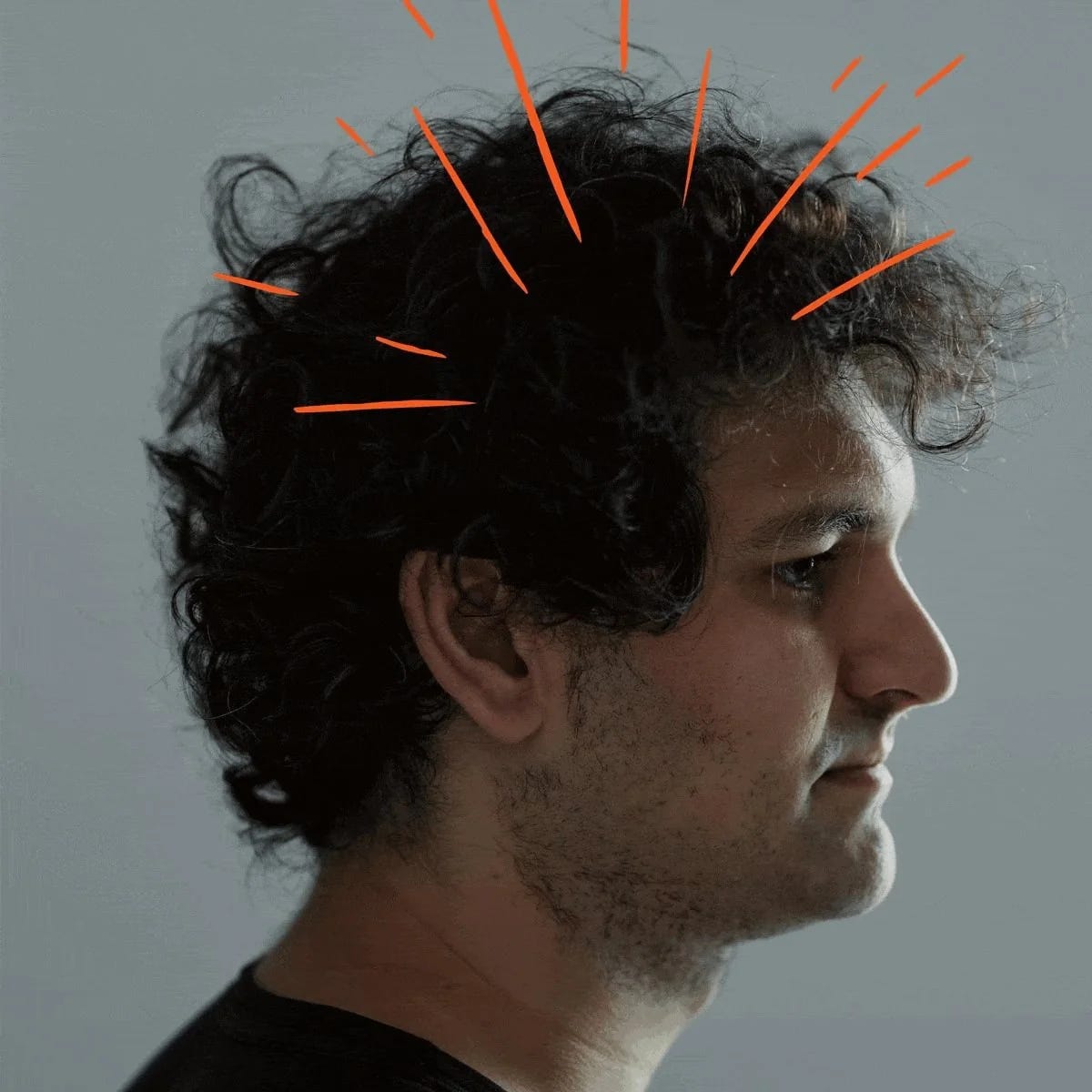
I remember a quotable from the crypto-bro avatar, Sam Bankman-Fried, something along the lines of how he didn’t read books. I imagine a set of East Coasters in editorial jobs reaching for their imaginary pearl necklaces in shock: NOT READ BOOKS? But in some weird way I agree…not with his direct quote—I actually do read books, on pace for around fifty this year between audio, electronic, and codex formats—but with his subtext that books aren’t worth his time. I imagine some more shock at that statement, so let me be specific: I thought to check out Joseph Stiglitz’s new book, The Road to Freedom, from the library and left disappointed—why was this a book? I ended up reading part 1, skipping part 2, and skimming through part 3 so that I could at least read his prescriptive conclusions. At the end, I pulled out my post-it bookmark, closed the book, and thought aloud, “This should have been an essay or a pamphlet.” It’s not that I don’t agree with the statements that I read—I did. It’s just that beyond his main point the rest of the expressed words didn’t offer much. Here’s the main idea of his book: neoliberal’s freedom to contract constrains the freedoms of many more of society’s people (the “opportunity set” available to those people which roughly translates to freedom as an agency: a freedom to be, do, or act). The other notable point of view that he expressed is that regulation is an efficient means of constraining behavior on the front end that takes into account the externalities that neoliberalism overlooks. So there, two meaningful ideas. But that’s it, that’s the book. It could have been a social media post.
So what is the take home if you’d like to stop here? Cut mercilessly if you’re going to needlessly over-express.
What are books for, then? I think next to a conversation that I had with a loved one about our two-person book club read, One Hundred Years of Solitude. She said, “I think this book will ruin other books for me. There’s just so much here!” What she meant during our back-and-forth is that the the sheer volume of detail Gabriel Garcia-Marquez packed into the book is jungle-like where each word choice adds on importance to the heft of the gestalt. The author packs so much meaning into the words that he chooses while also producing a lot of words. Even the original Spanish as an expressive language plays into the lusciousness of the book. After each chapter you’ve eaten a sumptuous course and at the end of the book a most satisfying meal. Now I realize that I’m comparing a non-fiction economic-philosophical thought book to a literary masterpiece, so not quite fair. I get that. But there’s so many examples of non-fiction books of a variety of genres that are more efficient with the audience’s time.
What are books for, then? Let’s compare them to other media. If I’m watching a show on Netflix, then I’m visually transporting into a world for entertainment, whether or not it’s informative. If I’m firing up Spotify or Apple Music, then I’m wanting a vibe. The same would seem to be for drinking or lighting a joint: a vibe is what I’m after. If I’m going onto YouTube then I’m likely looking to fix something, so I’m abstracting some in-person technical know-how; sometimes it’ll be for a music video, so that’s entertainment. If I’m playing a game or exercising, then I’m looking for engagement of my senses or looking for a challenge. If I’m listening to a podcast, perhaps the closest space to the written word, then I’m looking for the same stuff as books and essays but in a way where after receiving the audio words I leverage my brain to generate some of the experience. Then we get to essays and books. In the shorter form, the essay, I’m looking for ideas and thoughts. They could be informative or entertaining. But the core of the essay would have to be the idea, a connection between thoughts that the author leads me to and points out in a way that I probably wouldn’t have seen that connection myself. After the essay, I’m left with asking myself what I think about those thoughts that I thought and how I feel about those thoughts.
What are these books for then? The book should take the ideas of essays and fill out the detail so that the reader gets as close to the thoughts of the author as possible—not quite an embodied knowledge, but close all the same. Two books spring to mind: Adam’s Smith’s The Wealth of Nations, and Ian McGilchrist’s The Master and His Emissary. Both are exhaustive tomes. The former is five books in one! The latter displays the author’s broad knowledge in philosophy, medicine, and arts. But I’ll repeat that they both are exhausting in that the level of meticulous detail supporting their arguments is voluminous. If you were to read each, you would likely not remember all the details written. Having gone through all those details, though, gives your subconscious mind a feeling of a broader and deeper understanding of their arguments versus if each author had edited them down to an essay. I guess a truly good book is like a good album or TV show. At the end you’ve worked your way through so many good ideas, feelings, and nuances that you’re left with a fuller picture of the world than before.
The medium matters!
So in the same way that I’m annoyed with DJs “remixing” songs by putting their trash electronic noise under familiar widely-known lyrics, I’m a little impatient with books that are books “just because” when they would have lived a better life as a svelte essay or blog post. In those instances, SBF was right. If you’re looking for a more justifiable out, just abandon media that go nowhere.


